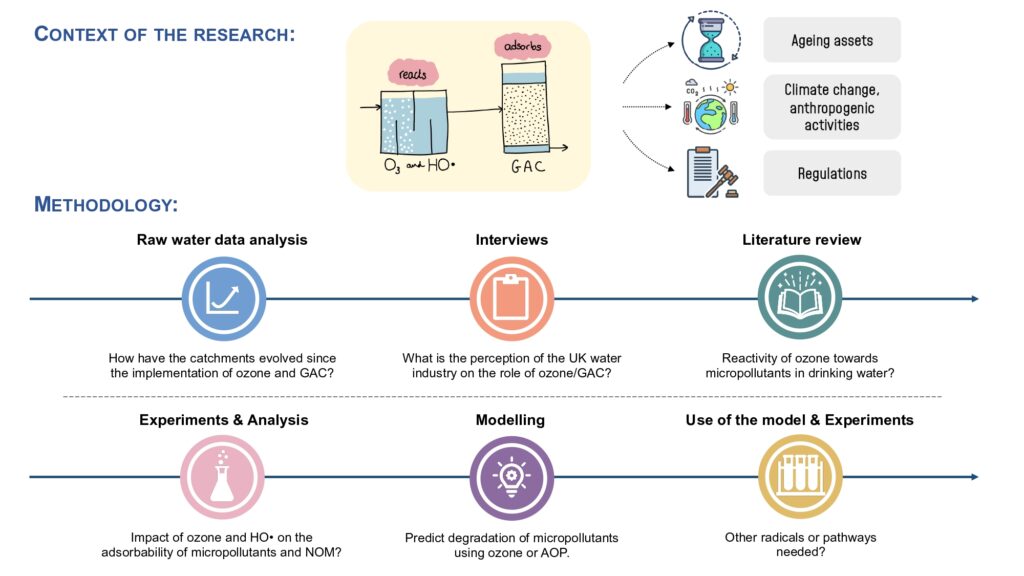Meet Lucie Pidoux
Email: [email protected]
Academic and Industrial affiliations: Cranfield University, Thames Water, Anglian Water
Title of research project: Are ozone and granular activated carbon fit for purpose to meet current and future water quality challenges?

Ozone and granular activated carbon (GAC) drinking water treatment processes were implemented across parts of the UK water industry in the 1990s. Today, the equipment used to deliver the processes is reaching the end of its life and future challenges need to be carefully considered (emergence of micropollutants due to climate change and anthropogenic activities, regulatory changes). Hence the need to determine whether ozone/GAC remains the most appropriate solution. And if need be, would an enhancement of it, or an alternative process be able to address these forthcoming water quality challenges?
Furthermore, past studies have shown that the reaction of ozone with organic and inorganic components can lead to the formation of undesired by-products. With the exception of bromate, it is generally accepted that most oxidation by-products are adsorbed onto GAC. However, there is not a lot of evidence of that today. Therefore, this research project aims at determining how ozone and hydroxyl radicals change the adsorbability of micropollutants and natural organic matter (NOM) by-products onto GAC. In the next phase of the research, opportunities will be explored in order to build a model based on molecular structure that predicts the degradation of micropollutants using ozone or an hydroxyl radical-based process. The model could then be used as a tool to indicate for a certain chemical should it react with ozone? with •OH? should its by-products adsorb onto GAC?

